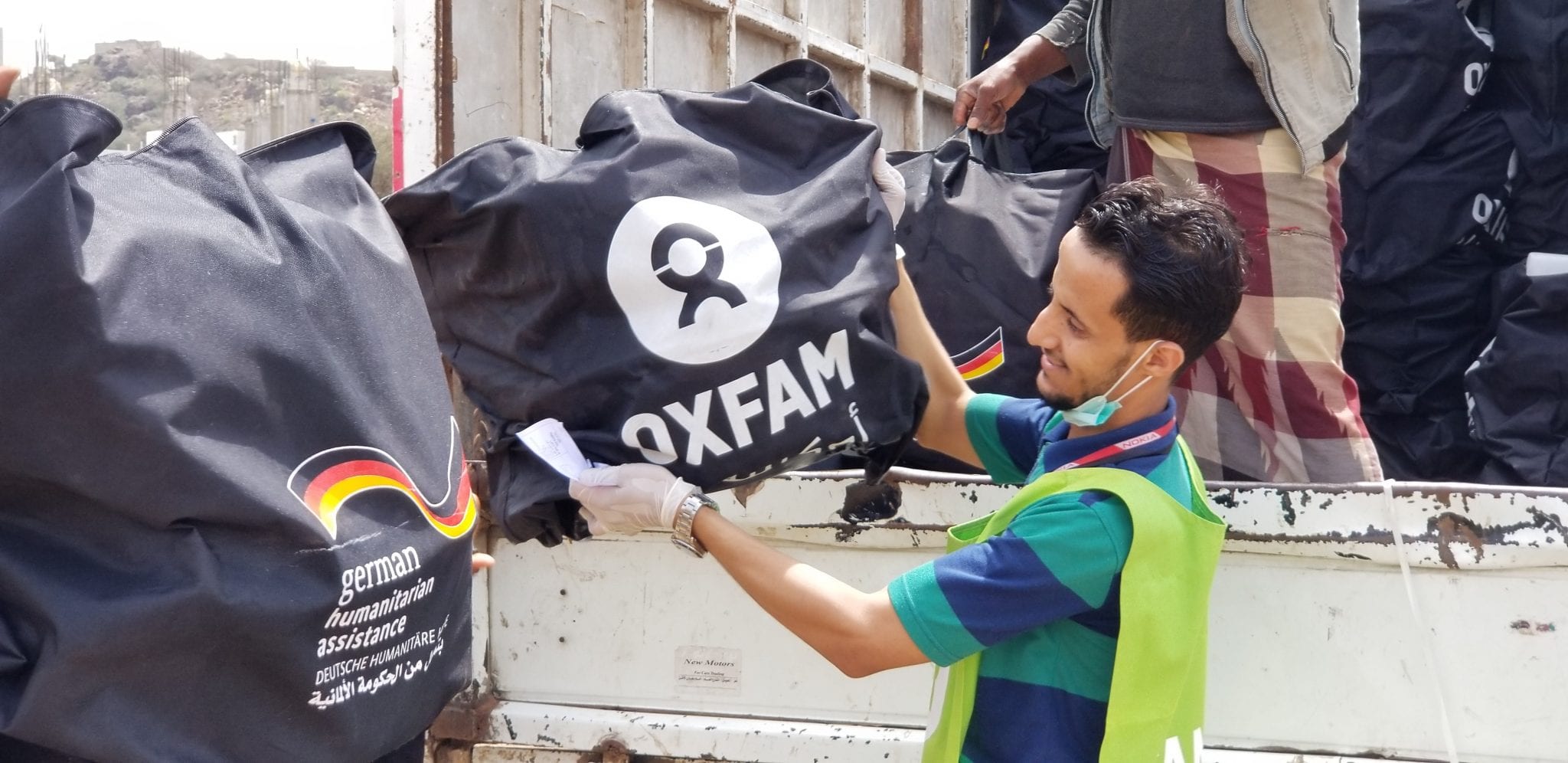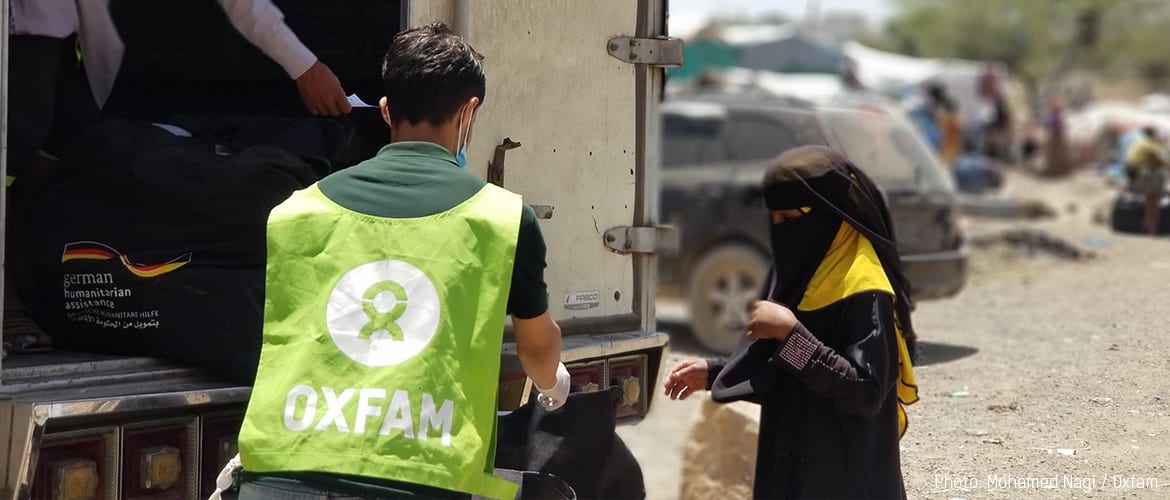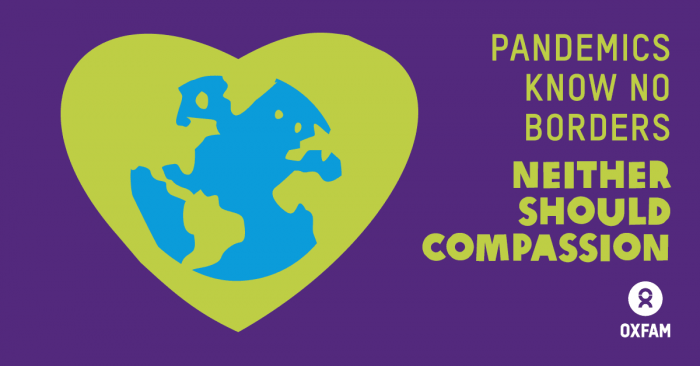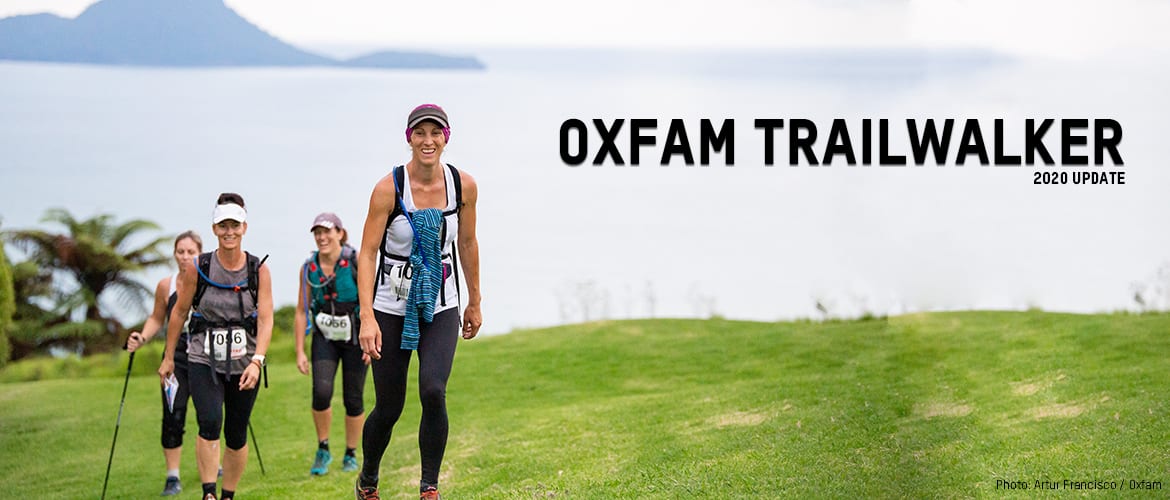
Emergency WASH response to the conflict affected people in Taiz and Ibb Governorates of Yemen. Photo: Hitham Ahmed / Oxfam
Refugees living in camps are sharing one tap between up to 250 people and many have less than 3.5 square meters of living space per person which means it will make it extremely difficult to contain a coronavirus outbreak, Oxfam said today.
The virus could also be catastrophic for people and places hit by conflicts, like Yemen, Syria and South Sudan, who are already struggling with malnutrition, diseases like cholera and a lack of clean water and health facilities.
The standards for refugee camps, agreed by agencies responding to humanitarian crises, were simply not designed to cope with a global pandemic. They state that there should be one tap for no more than 250 people and 3.5 square meters of living space per person.
In some cases, even these minimum requirements are not met. The sprawling Rohingya refugee camp at Cox’s Bazar in Bangladesh is severely overcrowded with 40,000 people per square kilometre.
Malnutrition and diseases like dysentery, cholera and typhoid are already a high risk in Cox’s Bazar, undermining the health of these communities. There is also very limited access to basic health services, let alone more specialised care.
In Moria camp on the Greek island of Lesbos, which was built for 3000 people but now hosts nearly 20,000 people, there are up to 160 people using the same dirty toilet and over 500 people per one shower. In some parts of the camp, 325 people share one tap and there is no soap. Fifteen to 20 people can be living in a single shipping container, or in tents or makeshift shelters.
Advice from the World Health Organisation states that people should stay a meter away from anyone coughing or sneezing, wash their hands frequently and seek medical help as soon as symptoms become apparent to avoid spreading coronavirus.
Oxfam’s global Coronavirus Response Operations Lead, Marta Valdes Garcia, said: “The death toll around the world is rising rapidly but this will be just the tip of the iceberg if and when the virus spreads to the world’s most vulnerable communities”.
“Camps for people who have been forced to flee their homes are simply not set up to cope with a pandemic like coronavirus. Aid agencies will need to work even harder to prepare for and deal with the arrival of this disease.
“While many nations are understandably focused on containing the spread of the pandemic amongst their own population, it’s crucial they don’t turn their back on millions of the most vulnerable people worldwide. The international community needs to mobilise huge resources behind developing countries to cope if we’re to honour the promise of “no-one is safe until we’re all safe”.
“Millions of people in countries for instance across central, southern and eastern Africa are already suffering chronic and severe food shortages and will be equally hit hard by the disease and any restrictions needed to help deal with it, which are likely to further compromise their food security as well as their jobs and livelihoods,” she said.
Oxfam’s expertise is in water, sanitation, hygiene and public health promotion – vital for any attempts to manage the rate of inevitable infections – and it is working closely with local partner organisations to increase the number of communal taps and water distribution systems, toilets and engaging communities on improved hygiene practices.
Women are usually hardest hit during emergencies and as they carry out most of the care work, are especially vulnerable to exposure to the virus. Oxfam is also concerned about risk of gender-based violence as families are forced to remain in their homes and support centres and networks are closed.
Communities, local organisations, women and refugee-led organisations are already mobilising, and Oxfam is working alongside them to meet the needs of the most vulnerable. Oxfam is also building up its work to help people in the poorest countries make a living and feed their families should coronavirus hit.
Beyond refugee camps, many other communities with whom Oxfam works are particularly vulnerable to the disease. In Gaza, where there are already 10 confirmed cases, there are more than 5,000 people per square kilometre and fewer than 70 intensive care beds for a population of two million. In Yemen, only 50 percent of health centres are functioning, and those that are open face severe shortages of medicines, equipment and staff. Around 17 million people – more than half the population – have no access to clean water.
Efforts to respond to humanitarian crises in several locations, like Yemen and Syria, were already underfunded. Now they must compete with each other for the resources to fight the Coronavirus all while the world reels from the economic effects of widespread shut-downs. The UN has called for $2 billion to fund a global coordinated response to coronavirus in vulnerable countries. Oxfam supports the UN call for a global cease-fire in order to help countries in conflict to cope.
Notes
The standards for size and capacity of refugee camps are set out here
Information on camp density in Bangladesh is available from UNHCR here
- Oxfam is helping vulnerable communities affected by coronavirus, including:
- Working with local partners to help 118,000 Rohingya people in Cox’s Bazar in Bangladesh, and Rakhine state in Myanmar with clean water, soap and hygiene kits, as well as public health awareness information, including using female volunteers to disseminate hygiene and prevention awareness messages to women and girls at their doors. We are also supporting 5,000 vulnerable households in communities around Cox’s Bazar with water and sanitation.
- Prompting hygiene awareness and hand washing to 76,000 Syrian refugees in Zaatari camp, Jordan and distributing soap in communities hosting Syrian refugees in Lebanon
- Rehabilitating a hospital and its isolation unit that serves a community of 50,000 in Iraq
- Planning to build or repair 107 water points for people in Burkina Faso who have fled fighting
- Carrying out hygiene awareness training for refugees in the north of Uganda
- In Yemen, Oxfam is training volunteers to raise awareness and promote hygiene amongst conflict-affected communities.








